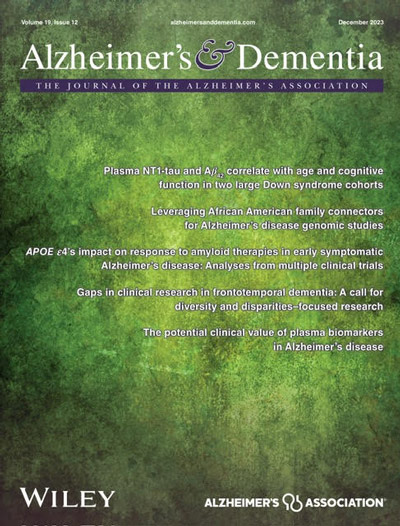APOE ε4 linked effects on clinical features and neuropathology in dementia with Lewy bodies
Abstract
INTRODUCTION
Apolipoprotein E (APOE) ε4 is a strong genetic risk factor for Alzheimer's disease (AD) neuropathologic changes, but its contribution to clinical features and pathology in dementia with Lewy bodies (DLB) is less clear.
METHODS
Using the National Alzheimer Coordinating Center dataset, we investigated APOE ε4-associated effects on DLB core clinical features and neuropathology.
RESULTS
In analyses of APOE ε4 carriers, dosage, and genetic risk score, APOE ε4 was associated with lower odds of fluctuating cognition and parkinsonism and higher odds of visual hallucinations. APOE ε4 was associated with greater neocortical Lewy body pathology, partially mediated by AD co-pathology. The severity of fluctuating cognition was associated with Lewy body pathology stage after controlling for AD co-pathology. Visual hallucinations were associated with both Lewy body and AD pathologies.
DISCUSSION
Core clinical features of DLB are sensitive to APOE haplotype. Targeting APOE biology may elucidate DLB pathogenesis and inform therapeutic development.
Highlights
- Core clinical features of dementia with Lewy bodies were sensitive to apolipoprotein E (APOE) haplotype.
- APOE ε4 was associated with a higher likelihood of hallucinations yet a lower likelihood of cognitive fluctuations.
- APOE ε4 was associated with greater severity of Lewy body pathology, partially mediated by Alzheimer's disease (AD) co-pathology.
- Whereas fluctuating cognition was primarily linked to Lewy body pathology, visual hallucinations were associated with both Lewy body and AD neuropathologic changes.


 求助内容:
求助内容: 应助结果提醒方式:
应助结果提醒方式:


